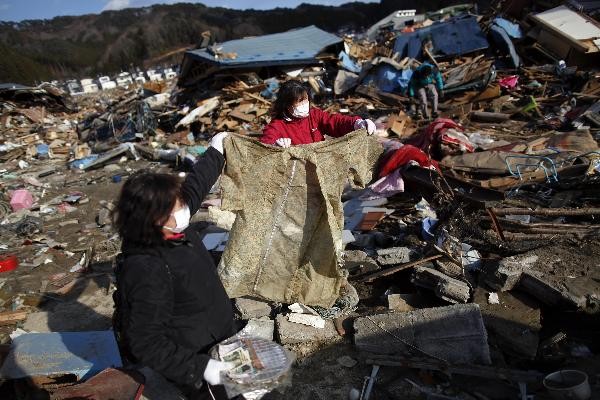The National Police Agency said on Tuesday that the catastrophic earthquake and ensuing tsunami have left 11,063 people dead and 17,258 others unaccounted for in Japan by 10:00 a.m. local time (0100 GMT).
A 9.0-magnitude earthquake hit the Pacific coastal areas of northeastern and eastern Japan on March 11, triggering enormous tsunami.
Heavy casualties and extensive damage have been caused by the twin disasters.

Japan's Chief Cabinet Secretary Yukio Edano on Monday suggested that the ongoing nuclear crisis at the Fukushima nuclear power plant in northeastern Japan may have serious ramifications on the future of nuclear power in the country.
Speaking at his second news conference of the day, the top government spokesperson said that once the radiation crisis at the Fukushima six-reactor facility had been brought under control, Japan would review the future of its nuclear energy supply policy.
We mourn the many deaths and suffering arising from the earthquake and tsunami that remorselessly pummeled Japan, and especially for our numerous Japanese IMD alumni and friends who may have been affected. While there will be much analysis of what happened, this tragedy provides also an opportunity to draw broader lessons and look forward.
Both of us can claim to know Japan reasonably well based on having lived, studied, taught and worked extensively in the country. We have maintained very close contact with Japan and a number of its leading Japanese companies throughout the years. During the 1980s, when we worked together, we shared a fascination for Japan.
























